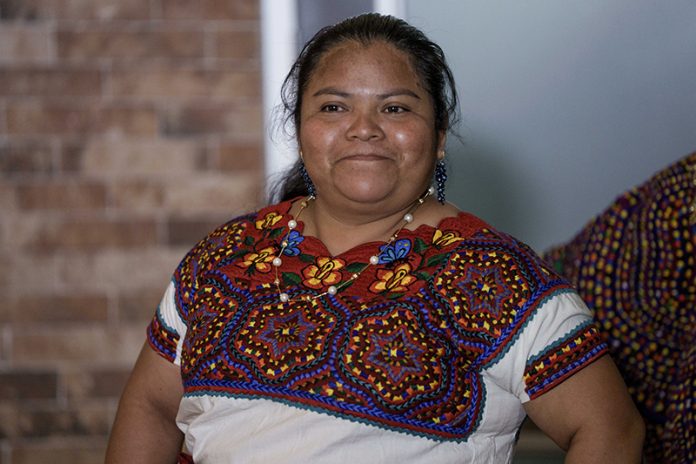
By SONIA PÉREZ D.
Associated Press
GUATEMALA CITY (AP) — An Indigenous migrant who was accused of kidnapping and jailed in a northern Mexico border city returned to her homeland of Guatemala on Sunday as a free woman after spending more than seven years in prison without a trial.
A Mexican court ordered the immediate release of Juana Alonzo Santizo, 35, on Saturday.
The court ruled there was no consistent evidence against her, said Netzaí Sandoval, head of Mexico’s federal public defenders office.
Sandoval, whose office took charge of defending Alonzo in 2021, contends she was tortured and forced to sign a confession that she did not understand because she couldn’t speak Spanish..
The Mayan Chuj woman left her village, San Mateo Ixtatán, in 2014 seeking to migrate to the United States, he said. She was detained by immigration officials while in Reynosa, a Mexican border city across from McAllen, Texas, and one of the main smuggling points in Tamaulipas state.
Police then accused her of kidnapping and put her in jail, Sandoval said. He said the charges were not translated into her Chuj language until this year.
She never was convicted, having never been tried, and was held all that time in “pre-trial detention.”
An advocacy campaign for her freedom was supported by national and international groups and by Mexican President Andrés Manuel López Obrador, and the Tamaulipas prosecutor office withdrew the charges against her.
“It is a totally aberrant case,” Sandoval said. All her rights were violated because “she is a woman, she is an Indigenous person, she is a migrant, she is poor, and she didn’t speak Spanish.”
An emotional Alonzo was greeted by her family at the Guatemala City airport on Sunday, and she collapsed into her father’s and her uncle’s arms. Her relatives helped her change from jeans into traditional regional clothes.
“It is easy to go to prison, but it is difficult to get out of it,” Alonzo said in halting Spanish, which she learned while in in prison.
“We are not stones, we are not plastic things.” she added.
Pedro Alonzo, an uncle, said she had migrated in hopes of helping her family.
“Her crime was being unable to speaking Spanish. Who is going to pay for that scar?” he said.
According to statistics from Mexico’s federal government, 43% of the people held in the country’s prisons have not been convicted or sentenced.



















